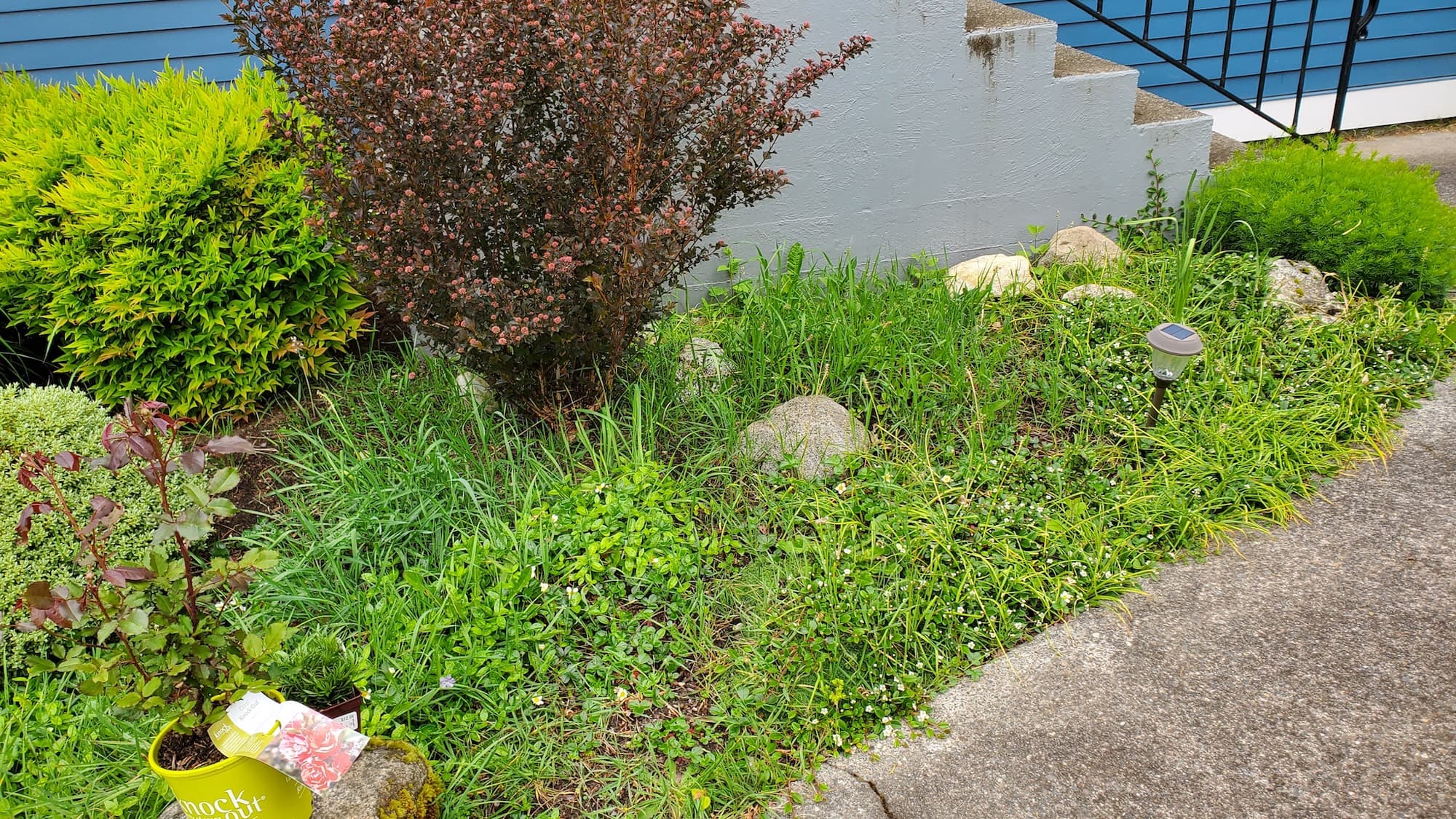West Seattle Green Waste Recycling
Homeowner’s Issue
West Seattle yards are lush and quick to take over. Most properties sit on compacted glacial till or old fill with thin topsoil; low spots and sloppy drainage are common around Fauntleroy and inland toward Morgan Junction. Winters are long and wet, which means moss and slugs thrive, while short, warm summers make drought stress and irrigation scheduling a problem. Many homes under big cedars and firs get shade-dominant lawns that never dry, producing constant leaf litter and thick moss mats. Steep driveways and front slopes near Alki and the Admiral ridge funnel runoff and create erosion and sticky mud in heavy rains.
HOAs and neighbors expect tidy edges and low-maintenance beds, but removing recurring problems—Himalayan blackberry at the rear, English ivy on slopes, and perennial weed flushes—takes more than one quick tidy. Sustainable green waste recycling solves two problems at once: it removes the current mess and converts plant material into mulch or compost that improves our poor soils. We avoid herbicides entirely, focus on mechanical removal, repeated follow-ups, and reused organic material to build better soil that holds water and suppresses moss long-term.
Our Quality Service
We collect, sort, and recycle your yard waste on a schedule that fits your property. Work includes chipping branches, hauling clippings, and transporting materials to municipal or partner composting facilities, or turning suitable material into screened mulch on site when practical. Tools we use: small chipper, electric blower, hand tools, pruning saws, wheelbarrows, tarps, and compost tarping systems. We never use herbicides — only hand-pulling, mechanical digging, targeted solarization, mulching, and organic amendments.
Typical timelines: small yard tidy (1–3 hours), medium yard cleanup (half day), large or overgrown properties and slope stabilization (1–2 days with follow-ups). We schedule heavy work outside the wettest days when possible to avoid rutting and compaction. Benefits: safer slopes, cleaner curb appeal, less ongoing maintenance, and improved soil that reduces future weed and moss pressure.
What’s Included
- Onsite assessment and photo estimate.
- Green waste collection: clippings, leaves, small branches (cut to chipper-safe sizes).
- Chipping of appropriate woody material; haul-away or compost delivery.
- Mulch application from recycled materials where requested.
- Edging, light pruning, and hand-weeding around plantings.
- Proper disposal to municipal/partner composting facilities (no landfill-bound green waste).
Options / Upgrades:
- Mulch + fabric bed prep (fabric where appropriate).
- Soil/topsoil amendment and screened compost spread.
- Organic weed control program (manual, mulching, and non-toxic spot treatments like steam or vinegar-based methods).
- Haul-away vs. green-bin transfer (we can place in your City green bin or haul to compost center).
- Erosion control blankets and staking for steep slopes.
Before & After / Expectations
Be realistic: heavy cleanups are noisy and produce wood chips, soil dust, and leaf blowings. Steep or narrow-access properties (e.g., some Admiral lots) can add time and a small access fee. We leave the site broom-clean and remove all recycled material unless you request compost/mulch be left for reuse. Overgrown roots, ivy, and blackberry require repeat visits—expect follow-ups every 4–12 weeks during the first year.
Care tips for West Seattle:
- Water new mulch lightly in the morning during dry spells; avoid evening irrigation in shaded, moss-prone beds.
- Spring and early fall bring the worst weed flushes; plan maintenance visits then.
- For north-facing yards under cedars, increase organic mulch depth and aerate compacted turf to reduce moss.
- Repeated removal beats one-time chemical control—be ready for 2–3 removals the first season on stubborn invasives.
FAQs
Q: Do you use herbicides?
A: No. We use mechanical, manual, thermal, and organic methods only.
Q: How do you dispose of green waste?
A: We chip or bag appropriate material and take it to partner composting facilities or leave screened mulch on-site by request. We can also transfer to your City green bin when available.
Q: What if my yard is steep or has poor access?
A: We’ll note access needs in the estimate. Narrow or steep jobs take longer and may incur an access fee, but we’ll tell you upfront.
Q: When’s the best time to schedule a deep clean?
A: Late spring after the big rains but before summer dryness, or early fall to clear gutters and beds ahead of winter storms.
Call to Action
West Seattle homeowners: book a free photo estimate and get the yard back under control with sustainable green waste recycling. Quick scheduling, realistic quotes, and local experience around Alki and Admiral hills. Email neatandtidyseattle@gmail.com to arrange a visit or ask for a same-week estimate.
Licensed • Bonded • Insured
Mon–Sun: 9am–6pm
📧 neatandtidyseattle@gmail.com
📞 206-538-9344










